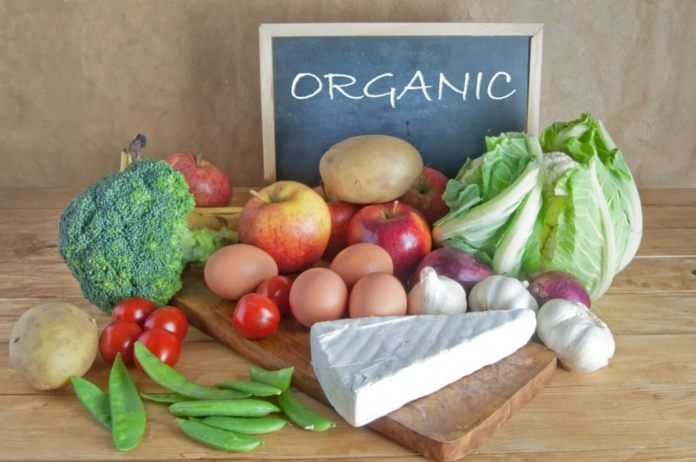What does it mean to be “organic”?
The term “organic” refers to the methods used to raise and process agricultural products. While standards vary by country, organic crops in the United States must be grown without the use of synthetic herbicides, pesticides, or fertilisers, as well as bioengineered genes (GMOs).
Also Read: Healthy Organic Living
Organic animals for meat, eggs, and dairy products must be raised in living conditions that allow them to express their natural behaviours (such as being able to graze on pasture) and fed organic feed and forage. Antibiotics, growth hormones, and animal by-products are not permitted.
Organic food’s advantages
Your mental and emotional health. As well as the environment, are all affected by how your food is grown or raised. People with sensitivities to foods, chemicals, or preservatives may discover. That their symptoms reduce or disappear when they eat solely organic foods.
Pesticides are less prevalent in organic vegetables: In conventional agriculture, chemicals such as synthetic fungicides, herbicides. And insecticides are frequently utilised, and residues linger on (and in) the food we eat.
Food that is grown organically is usually fresher: Because it is free of preservatives, it will last longer. Organic produce is sometimes grown on smaller farms closer to where it is sold.
Organic farming is generally more environmentally friendly: Organic agricultural approaches have the potential to minimise pollution, conserve water, reduce soil erosion, boost soil fertility, and use less energy. Farming without synthetic pesticides is also better for birds and animals in the area. As well as humans who live near farms.
Antibiotics, growth hormones, and animal byproducts are not used on organically bred animals: The use of antibiotics can develop antibiotic-resistant bacteria strains. And feeding cattle animal by products raises the risk of mad cow disease (BSE). Animals reared organically have more room to move about and have access to the outdoors, which helps them stay healthy.
Certain nutrients may be more abundant in organic meat and milk: According to the findings of a 2016 European study. Organic meat and milk had up to 50% higher amounts of some nutrients, such as omega-3 fatty acids. Than conventionally farmed meat and milk.
GMOs are not present in organic food: GMOs, also known as genetically engineered (GE) foods, are plants whose DNA has been altered in ways. That are not possible in nature or through traditional crossbreeding, most typically to make them pesticide resistant or to create an insecticide.
Food grown locally vs. organic food
There is no formal definition for “local food,” unlike organic standards. It could be grown in your neighbourhood, in your state, in your area, or even in your country. During the majority of the year, food grown near to home can usually be found at places like a farmer’s market.
The advantages of eating food sourced locally
Financial: The money stays in the community. Instead of going to marketing and distribution, more money goes directly to the farmer.
Transportation: In the United States, for example, a meal travels over 1,500 miles from the farm to the dinner plate. Produce must be gathered when still unripe and then gassed after shipment to “ripen” it. Alternatively, the food is heavily treated in factories, where preservatives, irradiation. And other methods are used to maintain it stable for transportation.
Freshness: Local food is gathered when it is ripe, making it fresher and more flavorful.
Some small farmers in the area use organic practises, although. They may not be able to pay to be certified organic. Visit a farmer’s market and inquire about the methods used by the farmers.
Understanding Genetically Modified Organisms
The ongoing debate about the consequences of genetically modified organisms on human health and the environment is contentious. GMOs are designed to make food crops resistant to herbicides and/or produce insecticides in the majority of cases.
Pesticides and genetically modified organisms
Since the introduction of GMOs, the use of hazardous herbicides like Roundup (glyphosate) has surged 15-fold. Despite the World Health Organization’s announcement. That glyphosate is “probably carcinogenic to humans,” there is still significant debate about the extent of pesticide-related health hazards.
Is organic synonymous with pesticide-free?
One of the key advantages of eating organic is that pesticide levels are lower. Organic farms, contrary to popular assumption, do utilise pesticides. The distinction is that they only employ pesticides that are naturally generated. Rather than the synthetic pesticides that are commonly used on commercial farms. Natural insecticides are thought to be less hazardous, yet some have been linked to health problems. However, eating organic will likely reduce your exposure to dangerous pesticides.
Suggested Read: Swachhbharat










